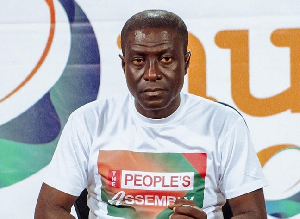The outbreak of the novel Covid-19 Coronavirus has truly shed light on the failed human relation protocol in the cooperation between nations.
On a regular basis heads of states and leaders of governments meet to discuss how they can work together, talking about bilateral cooperation. Most countries have their consulate in other countries which sees to the well-being of their citizenry in such countries and also be on the ground to form stronger cooperative ties. For example, Ghana has an embassy in the Democratic Republic of Congo (DRC) which signifies that Ghana and the DRC have a strong political and economic tie.
However, when the Ebola pandemic erupted in the DRC, Ghana was inconspicuously absent on the front-line to help in the fight against Ebola. Ghana, a partner in trade with the DRC did not go all out to provide some sort of aid to the DRC and her people. Instead Ghana was busily putting measures in place to protect its own people from goings-on in far away DRC. The narrative was focused on what was trending in the DRC but less was done to provide assistance to a nation struggling to mitigate the annihilation of her people by a mysterious assailant.
In the parlance of international cooperation, the onus is first and foremost placed on what countries can benefit from each other in terms of commerce and finances. Little if nothing is done about instituting measures such that the inhabitants of these respective nations with a memorandum of understanding (MoU) can have a seemingly better way of life.
What I am earnestly trying to highlight is that all the talk about cooperation in terms of trade and economy between nations is good but our leaders should be able to go beyond the talk of trade and economy to focus on the overall good of their respective local populations. I will describe that aspect of diplomacy as human relations protocol. It goes way beyond casual acquaintances because for now the ties between nations has been structured more or less like casual friendship.
These leaders do not actually care about events taken place in the backyards of nations with whom they hold a bilateral cooperation tie. The relationship is always about what nation A benefits from nation B and vice versa, they are not actually concerned about the struggles prevalent in the backyard of the brother nation. As a matter of fact, bilateral cooperation should be seen as a brotherhood of nations. So, if a brother has a struggle going on at home, as a brother, you won’t have to wait to be called to the rescue. You offer that rescue. You offer a helping hand to a brother in need. You don’t do it for what you might get in return but you do it because that is the way you want to be treated when same is happening to you.
If human relation is the focus of the ties that binds nations, they will be there to assist each other regardless of what the outcomes, economically beneficial or not. This whole Coronavirus saga has highlighted the fact that nations are not concerned enough about each other’s well-being. If nations were concerned enough about the welfare of other nations and seeing themselves together in the struggle of life, regardless of the geographical location we would not be where we are today.
When Coronavirus reared its ugly head in the Chinese province of Wuhan, it was news all over the world. No nation stood up to go to the aid of China either with scientific expertise or just providing a sort of brotherly support. It was a Chinese affair. It was a Chinese virus as President Trump of the United States labeled it. Look at where the world is at today. The whole world has been practically taken hostage by Covid-19. The virus has thrust upon us a new reality which even the smartest of scholars did not see coming. A reality which we are will still struggling to accommodate.
Life as we know it has come to an abrupt halt. Citizens of the world are frustrated, scared and depressed in their homes because staying at home is not the way we live. We are social beings. We have sports, entertainment, the outdoors and so many other things we do that give meaning to our existence. Sadly, at this present time, we cannot do any of the stuff we are used to doing as human beings because we are all scared.
Coronavirus is spreading so fast, gaining more territories and infecting thousands of people regardless of their race, professions, gender or status in life. We are under sieged by Covid-19 because when the infection started in Wuhan, China the so-called super powers of the world did nothing for the Chinese people. They probably sat on their comfy terrace sipping some exotic brewery laughing at the Chinese fate. China was pointed and discussed in the news but no proactive steps were taken to go to its aid, see what this aloofness as caused the whole world presently.
We are where we are today because the world didn’t act immediately China faced was attacked by this reckless aggressor. That is why I am of the opinion that human relations must be very high on the agenda of cooperation among nations. If nations consider their respective well-being to such an extent, they feel the pangs of each other without having to physically be in the other’s shoe, we would not wait till we get to the breaking point to look for solutions.
We must be very proactive. Tackling any rising problem at the root be it escalates in an absurd magnitude. If we adopt this mentality, many happenings with the propensity to cripple the way we live as human beings, will be arrested in its track thus giving us (human beings) our way of life without interruptions.
What we should be learning from this pandemic is that nations must be supportive of each other. Instead of the description giving to some as third world countries, the so call super-powers of the world must do all in their might to help these lesser countries have the necessary infrastructures notably in the health sector and education. It is time the richest nations do away with the interest seeking kind of approach towards the less-developed ones.
When you have enough to cater for your people such that there are leftovers that is discarded wantonly then there is a serious anomaly in your thinking.
Opinions of Thursday, 7 May 2020
Columnist: Stephen Grant Adjorlolo, Contributor















